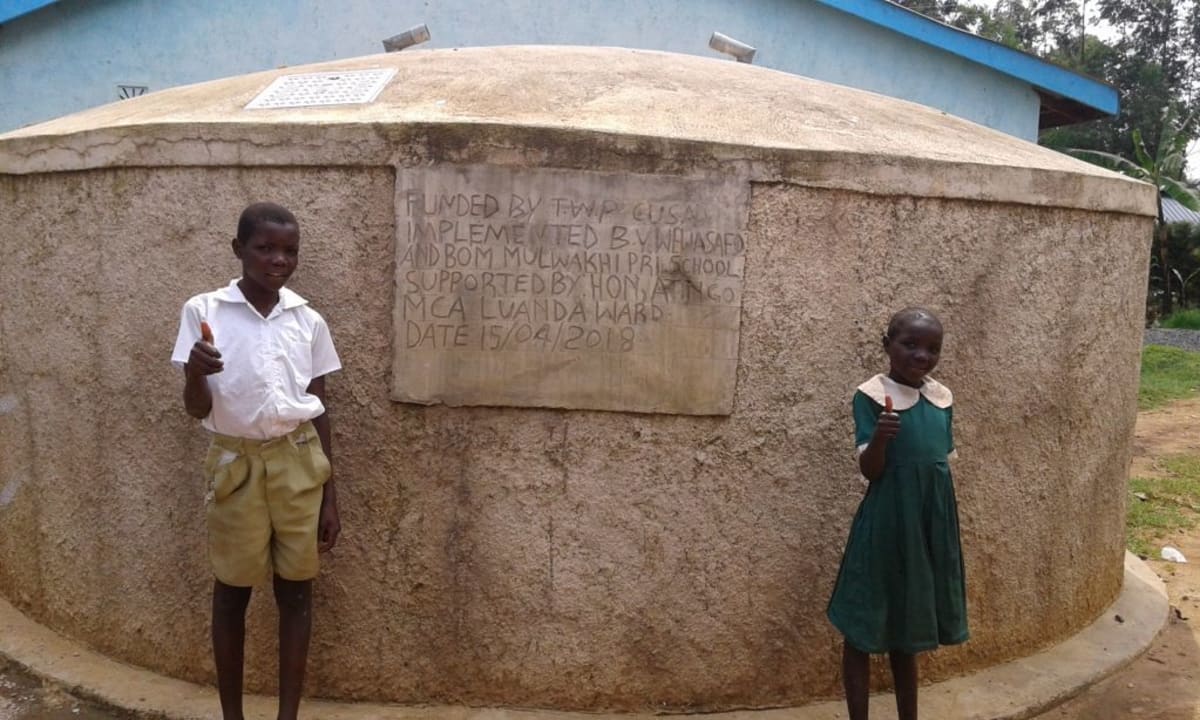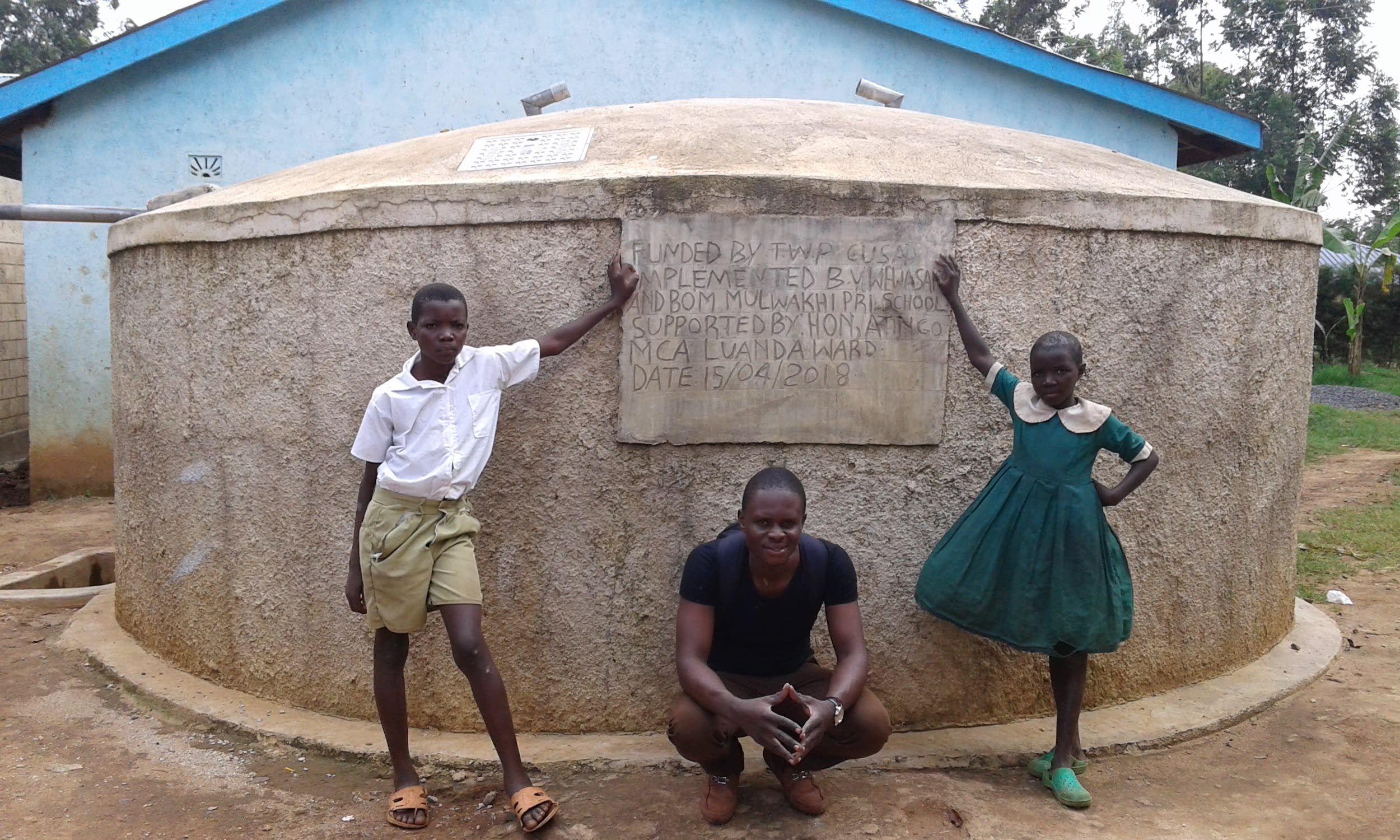Mulwakhi Primary School is located in Emayoka Village of Vihiga County, Kenya. There are 760 students attending here, all taught by 17 teachers. The school also employs three support staff. (Editor's Note: While this many people may have access on any given day, realistically a single water source can only support a population of 350-500 people. To learn more, click here.)
Children are required to be at school at 7:45am for morning announcements. After assembly, they all go to their respective classes where they wait for their teachers. Their classrooms are not in good condition, with broken, dusty floors. Between classes, children go outside to relax or use the latrines.
At 4pm when afternoon classes are through, students stay around to fetch water for cleaning. They play games for 30 minutes and then attend one more class before they're dismissed at 6pm.
Water Situation
Students have to leave school multiple times a day to fetch water from Mulwakhi Spring, which wastes a lot of study time. It is about a half kilometer away, and it's the only spring in the area. It's used by all of the community members, who assert themselves over the students who come to draw water. Students are always pushed to the back of the line.
We visited the spring and found it's protected, and we're sure that the water must be safe for drinking. However, we're concerned with the containers we see students using, which aren't covered or cleaned regularly. It is likely that water is contaminated by the time it is carried back to school, stored, and then finally consumed.
Sanitation Situation
We were amazed to find only eight doors of latrines for students; four doors are for the girls, the other four for boys, and two remaining latrines are for the teachers. The children have to line up for an incredibly long time to wait their turn. There are no handwashing stations, nor would there be the water to fill them. This has led to diarrhea, upset stomach, and frequent vomiting.
Naboth Anjichi sends her child to Mulwakhi Primary. She said, "This school suffers a lot due to lack of enough knowledge about sanitation and hygiene. if only they could get that information, they could be better placed. Ignorance is the root cause of many problems faced in this village and school, and the community just needs sensitization on how they should live a healthy life and all will be well."
What we can do:
Training and Handwashing Stations
Training will be held for two days. The facilitator will use PHAST (participatory hygiene and sanitation transformation), ABCD (asset-based community development), CTC (child to child), lectures, group discussions, and handouts to teach health topics and ways to promote good practices within the school. The CTC method will prepare students to lead other students into healthy habits, as well as kickstart a CTC club for the school. This CTC club will oversee the new facilities, such as handwashing stations, and make sure they are kept clean and in working condition. The two handwashing stations will be delivered to the school, and the club will fill them with water on a daily basis and make sure there is always a cleaning agent such as soap or ash.
VIP Latrines
Two triple-door latrines will be constructed with local materials that the school will help gather. Three doors will serve the girls while the other three serve the boys. And with a new source of water on school grounds, students and staff should have enough to keep these new latrines clean.
Rainwater Catchment Tank
A 50,000-liter rainwater catchment tank will help alleviate the water crisis at this school. The school will also help gather the needed materials such as sand, rocks, and water from the spring for mixing cement (students have already started helping). Once finished, this tank can begin catching rainfall that will be used by the school’s students and staff. Students will no longer have to leave school to fetch water from the village.
We and the school strongly believe that with this assistance, standards will significantly improve. These higher standards will translate to better academic performance!
This project is a part of our shared program with Western Water And Sanitation Forum (WEWASAFO). Our team is pleased to provide the reports for this project (edited for clarity) thanks to the hard work of our friends in Kenya.

 Rainwater Catchment
Rainwater Catchment
 Rehabilitation Project
Rehabilitation Project

































